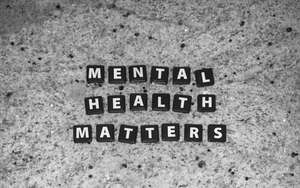
4 Things to Say (and 4 to Avoid) When Someone is Struggling
Reading Time: 2min
When someone you care about is going through a tough time, it’s natural to want to help. But sometimes, we worry about saying the wrong thing. We might stay silent because we don't have the perfect words.
The truth is, you don't need perfect words. You just need to be present and kind. Your support can be a lifeline. Here’s a simple guide on what to say, and what might be better to avoid.
4 Things to Say
1. "I'm really sorry you're going through this. I'm here for you."
This is simple, powerful, and non-judgmental. It shows you see their pain and are offering your support without demanding anything from them. It tells them they are not alone.
2. "That sounds incredibly hard."
Instead of trying to solve their problem, just validate their feeling. This phrase acknowledges their struggle and shows you're listening. It makes them feel heard and understood, which is often what people need most.
3. "You don't have to face this alone. Would you like company, or would you prefer some space?"
This gives them control. A struggling person often feels powerless. By asking what they need, you respect their autonomy. It shows you're willing to help on their terms.
4. "I'm thinking of you."
A simple text or note with this message can mean the world. It requires no response but lets them know they are in your thoughts. It’s a small gesture that carries a lot of warmth.
4 Things to Avoid
1. "I know exactly how you feel."
Even if you've had a similar experience, you can never truly know another person's inner world. This can feel dismissive, as if you're minimizing their unique pain. Instead, try, "I can't imagine how hard this is, but I want to understand."
2. "Just stay positive!" or "Look on the bright side."
This is often called "toxic positivity." It invalidates their very real feelings and can make them feel guilty for being sad or anxious. It sends the message that their pain is unacceptable.
3. "Everything happens for a reason."
While this might be meant as comfort, it can feel deeply hurtful to someone in crisis. It can seem like you're justifying their suffering. In a moment of pain, people need comfort for their reality, not a philosophical take on it.
4. "You should try [exercise/meditation/a new diet]."
Unsolicited advice, even when well-intentioned, can feel like criticism. It implies that their struggle is their fault for not trying the right solution. Unless they directly ask for advice, your role is to listen, not to fix.
The Most Important Thing
Remember, your presence is more important than your words. You don't need to have the answers. Often, the best thing you can do is listen without judgment, sit with them in their pain, and simply let them know you care. That alone is a powerful gift.

















